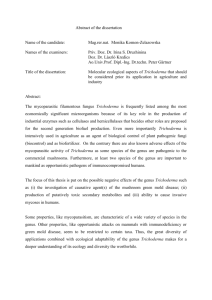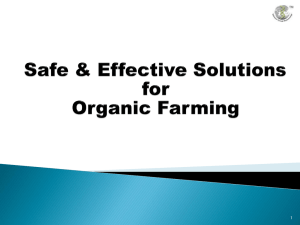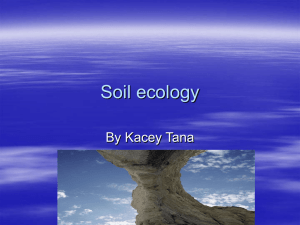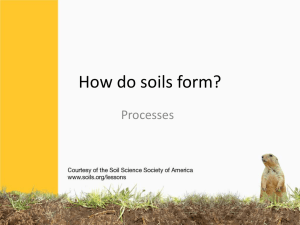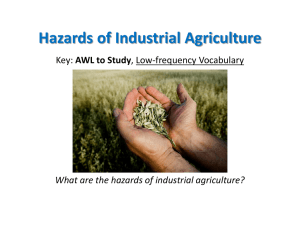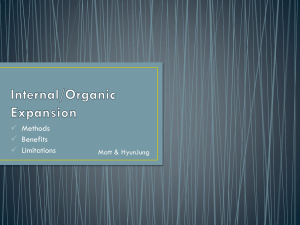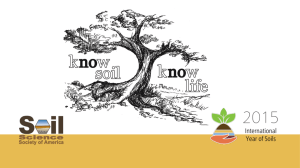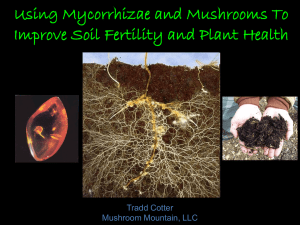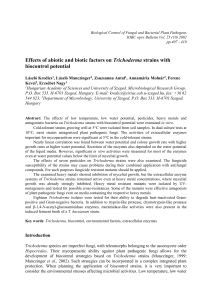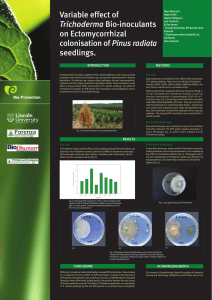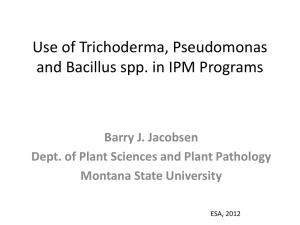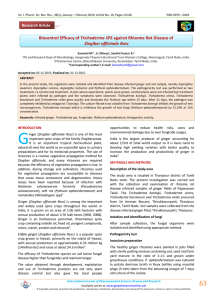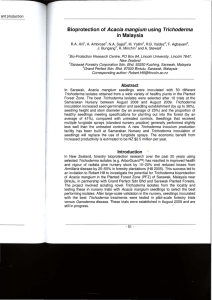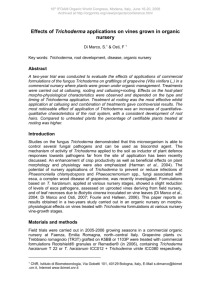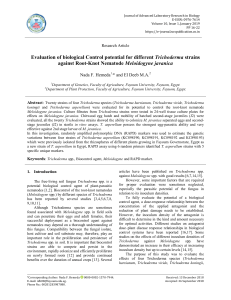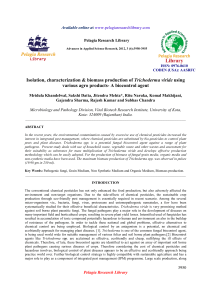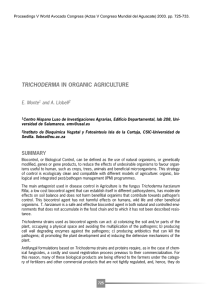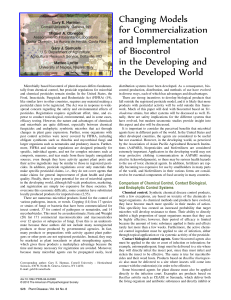Slide 1
advertisement
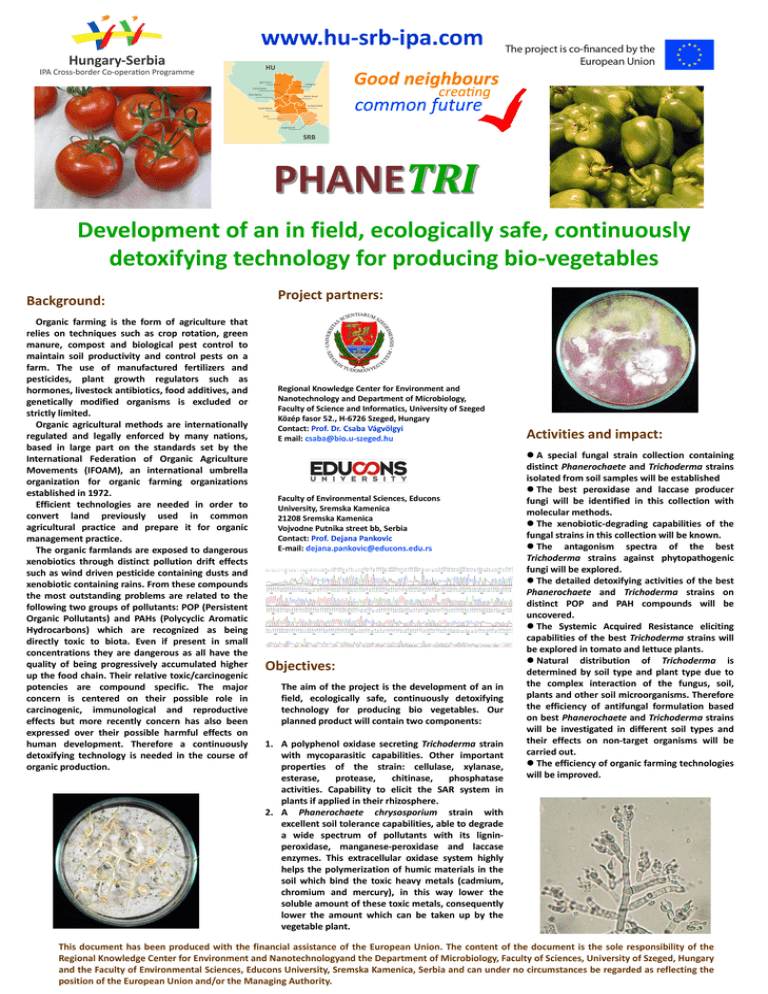
www.hu-srb-ipa.com PHANETRI Development of an in field, ecologically safe, continuously detoxifying technology for producing bio-vegetables Background: Organic farming is the form of agriculture that relies on techniques such as crop rotation, green manure, compost and biological pest control to maintain soil productivity and control pests on a farm. The use of manufactured fertilizers and pesticides, plant growth regulators such as hormones, livestock antibiotics, food additives, and genetically modified organisms is excluded or strictly limited. Organic agricultural methods are internationally regulated and legally enforced by many nations, based in large part on the standards set by the International Federation of Organic Agriculture Movements (IFOAM), an international umbrella organization for organic farming organizations established in 1972. Efficient technologies are needed in order to convert land previously used in common agricultural practice and prepare it for organic management practice. The organic farmlands are exposed to dangerous xenobiotics through distinct pollution drift effects such as wind driven pesticide containing dusts and xenobiotic containing rains. From these compounds the most outstanding problems are related to the following two groups of pollutants: POP (Persistent Organic Pollutants) and PAHs (Polycyclic Aromatic Hydrocarbons) which are recognized as being directly toxic to biota. Even if present in small concentrations they are dangerous as all have the quality of being progressively accumulated higher up the food chain. Their relative toxic/carcinogenic potencies are compound specific. The major concern is centered on their possible role in carcinogenic, immunological and reproductive effects but more recently concern has also been expressed over their possible harmful effects on human development. Therefore a continuously detoxifying technology is needed in the course of organic production. Project partners: Regional Knowledge Center for Environment and Nanotechnology and Department of Microbiology, Faculty of Science and Informatics, University of Szeged Közép fasor 52., H-6726 Szeged, Hungary Contact: Prof. Dr. Csaba Vágvölgyi E mail: csaba@bio.u-szeged.hu Faculty of Environmental Sciences, Educons University, Sremska Kamenica 21208 Sremska Kamenica Vojvodne Putnika street bb, Serbia Contact: Prof. Dejana Pankovic E-mail: dejana.pankovic@educons.edu.rs Objectives: The aim of the project is the development of an in field, ecologically safe, continuously detoxifying technology for producing bio vegetables. Our planned product will contain two components: 1. A polyphenol oxidase secreting Trichoderma strain with mycoparasitic capabilities. Other important properties of the strain: cellulase, xylanase, esterase, protease, chitinase, phosphatase activities. Capability to elicit the SAR system in plants if applied in their rhizosphere. 2. A Phanerochaete chrysosporium strain with excellent soil tolerance capabilities, able to degrade a wide spectrum of pollutants with its ligninperoxidase, manganese-peroxidase and laccase enzymes. This extracellular oxidase system highly helps the polymerization of humic materials in the soil which bind the toxic heavy metals (cadmium, chromium and mercury), in this way lower the soluble amount of these toxic metals, consequently lower the amount which can be taken up by the vegetable plant. Activities and impact: A special fungal strain collection containing distinct Phanerochaete and Trichoderma strains isolated from soil samples will be established The best peroxidase and laccase producer fungi will be identified in this collection with molecular methods. The xenobiotic-degrading capabilities of the fungal strains in this collection will be known. The antagonism spectra of the best Trichoderma strains against phytopathogenic fungi will be explored. The detailed detoxifying activities of the best Phanerochaete and Trichoderma strains on distinct POP and PAH compounds will be uncovered. The Systemic Acquired Resistance eliciting capabilities of the best Trichoderma strains will be explored in tomato and lettuce plants. Natural distribution of Trichoderma is determined by soil type and plant type due to the complex interaction of the fungus, soil, plants and other soil microorganisms. Therefore the efficiency of antifungal formulation based on best Phanerochaete and Trichoderma strains will be investigated in different soil types and their effects on non-target organisms will be carried out. The efficiency of organic farming technologies will be improved. This document has been produced with the financial assistance of the European Union. The content of the document is the sole responsibility of the Regional Knowledge Center for Environment and Nanotechnologyand the Department of Microbiology, Faculty of Sciences, University of Szeged, Hungary and the Faculty of Environmental Sciences, Educons University, Sremska Kamenica, Serbia and can under no circumstances be regarded as reflecting the position of the European Union and/or the Managing Authority.
